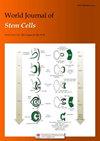利用引导策略推进间充质基质/干细胞疗法的临床应用
IF 3.6
3区 医学
Q3 CELL & TISSUE ENGINEERING
引用次数: 0
摘要
间充质基质/干细胞(MSCs)因其显著的治疗潜力而在再生医学领域备受关注。间充质干细胞在维持组织稳态方面发挥着关键作用,在各种器官的组织修复和恢复中具有多种功能。间充质干细胞具有易获取、伦理问题少、体外培养适应性强等特点,是多种临床病症细胞治疗的宝贵资源。多年来的研究表明,间充质干细胞的真正治疗能力不在于细胞移植和替代,而在于其产生关键旁分泌因子的能力,包括细胞因子、生长因子和外泌体(EXOs),这些因子可调节组织微环境并促进修复和再生过程。因此,间充质干细胞衍生产品,如条件培养基和外泌体,因其潜在的医疗应用而受到广泛评估,与长期使用整个间充质干细胞相比具有优势。然而,在临床试验中,基于间充质干细胞的治疗效果各不相同,这是因为选择不同的细胞来源和非标准化的生产方法造成的内在差异。为了解决这些问题并提高间充质干细胞的治疗潜力,研究人员探索了许多诱导策略,包括暴露于炎症分子、缺氧条件和三维培养技术。这些方法优化了间充质干细胞功能因子的分泌,使其具有更强的免疫调节、血管生成和再生特性,以适应特定的医疗条件。事实上,从免疫相关疾病到急性损伤和癌症等多种疾病的治疗中,各种诱导策略都显示出了良好的前景。目前,为了充分挖掘间充质干细胞疗法的治疗潜力,最重要的挑战是优化间充质干细胞的调节,以获得针对特定临床疾病的细胞疗法。换句话说,要释放间充质干细胞在再生医学中的全部潜力,关键是要确定最合适的组织来源,并针对所治疗疾病的类型制定体外操作方案。本文章由计算机程序翻译,如有差异,请以英文原文为准。
Use of priming strategies to advance the clinical application of mesenchymal stromal/stem cell-based therapy
Mesenchymal stromal/stem cells (MSCs) have garnered significant attention in the field of regenerative medicine due to their remarkable therapeutic potential. MSCs play a pivotal role in maintaining tissue homeostasis and possess diverse functions in tissue repair and recovery in various organs. These cells are characterized by easy accessibility, few ethical concerns, and adaptability to in vitro cultures, making them a valuable resource for cell therapy in several clinical conditions. Over the years, it has been shown that the true therapeutic power of MSCs lies not in cell engraftment and replacement but in their ability to produce critical paracrine factors, including cytokines, growth factors, and exosomes (EXOs), which modulate the tissue microenvironment and facilitate repair and regeneration processes. Consequently, MSC-derived products, such as conditioned media and EXOs, are now being extensively evaluated for their potential medical applications, offering advantages over the long-term use of whole MSCs. However, the efficacy of MSC-based treatments varies in clinical trials due to both intrinsic differences resulting from the choice of diverse cell sources and non-standardized production methods. To address these concerns and to enhance MSC therapeutic potential, researchers have explored many priming strategies, including exposure to inflammatory molecules, hypoxic conditions, and three-dimensional culture techniques. These approaches have optimized MSC secretion of functional factors, empowering them with enhanced immunomodulatory, angiogenic, and regenerative properties tailored to specific medical conditions. In fact, various priming strategies show promise in the treatment of numerous diseases, from immune-related disorders to acute injuries and cancer. Currently, in order to exploit the full therapeutic potential of MSC therapy, the most important challenge is to optimize the modulation of MSCs to obtain adapted cell therapy for specific clinical disorders. In other words, to unlock the complete potential of MSCs in regenerative medicine, it is crucial to identify the most suitable tissue source and develop in vitro manipulation protocols specific to the type of disease being treated.
求助全文
通过发布文献求助,成功后即可免费获取论文全文。
去求助
来源期刊

World journal of stem cells
Biochemistry, Genetics and Molecular Biology-Molecular Biology
CiteScore
7.80
自引率
4.90%
发文量
750
期刊介绍:
The World Journal of Stem Cells (WJSC) is a leading academic journal devoted to reporting the latest, cutting-edge research progress and findings of basic research and clinical practice in the field of stem cells. It was launched on December 31, 2009 and is published monthly (12 issues annually) by BPG, the world''s leading professional clinical medical journal publishing company.
 求助内容:
求助内容: 应助结果提醒方式:
应助结果提醒方式:


